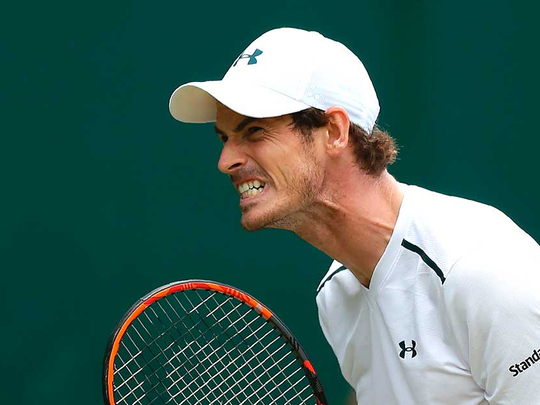
Sexism rows in tennis are like doping rows in athletics: they come so thick and fast you can’t disaggregate them. Was it a Twitter troll who called that female champion too fat to win, or John Inverdale? Was it the Daily Mail who said women should be paid less than men, or the Lawn Tennis Association? Was it Donald Trump who spent a week fixated on pregnant players continuing to compete, or the Today programme? Do they have male-only drinking fountains at Wimbledon, or did I dream it?
Last week, Andy Murray called for female players to get equal billing on the show courts: currently, Centre Court and Court No 1 have three matches in a day, two male and one female. “I think ideally you would have two men’s and two women’s on Centre,” he said. It is the mildest possible egalitarian solution, asking no sacrifice from the male players, suggesting only “potentially starting the matches a bit earlier”.
It is extraordinary not in itself, but that he said it at all. Male players generally adopt the tennis version of a don’t-ask-don’t-tell policy on the state of the game: don’t ask what’s going on in the way men and women, respectively, are treated, because it’s bleeding obvious; and don’t tell anyone what you think, because it is the God-given right of the athlete to have no view.
“Inequality is something I started to see and become passionate about,” said Murray two years ago, discussing the unusual scrutiny heaped upon his female coach, Amelie Mauresmo. Having a woman in the role, he said, has “opened my mind”. Thoughts, in order: one, hang on, wasn’t his mother his first coach? Isn’t Judy Murray, like, quite good at coaching, as in spawned two tennis geniuses out of her actual body, then taught them how to do it? Wouldn’t it irk her, that it took Mauresmo to open his mind?
Two, Murray never reads as a feminist, because his wife, Kim Murray, nee Sears, is too neat and is always clapping him. This is monumentally unfair, since he’s engaged full-time in a performance sport. Nonetheless, when all you see of a man’s home life is his exquisitely turned-out womenfolk clapping, “feminist” is not the word that springs into your head.
But, more importantly, three — to return to Mauresmo — it was interesting, not to see Murray’s decision criticised, so much as the shape that criticism took: nobody came out and said that a proper man chooses a proper, male coach. Rather, every failure was laid at Mauresmo’s feet, every success ignored.
“She was slated every time I lost, which is something my former coaches never-ever experienced,” Murray recalled. There is something marvellous about the insidiousness of misogyny, the way it never walks proud but lies in wait for failure, then pounces: its subject can never be sure whether it’s fair or not. Not even Buffy could defend herself in the half-light of self-doubt.
So, while I baulk at the notion that Murray did anything admirable by employing a woman in a key role, this relationship, and all the feminist-y things he has said since, nets him another tennis title: he is the No 1 internal critic of the tennis patriarchy. Like a socialist needs Warren Buffett to criticise shareholders, a feminist needs Andy Murray to criticise tennis.
There are plenty of female tennis players with the articulacy and power to make a case for equality, but with no men prepared to involve themselves, it takes on the shape and dynamic of tennis itself — an endless back and forth, shots differentiable only from a distance, adversarialism the entire point. Indeed, since most male tennis players never say anything, and all the arguments from female players hit a brick wall of tradition and silence, it is more like squash. Murray leaping the net to call for equality reminds us that this element of the sport is not a game; that gender equality is not a he-said-she-said contest.
It is a simple matter of human justice, easily adjudicated not with loyalty or tribalism but reason.
— Guardian News & Media Ltd
Zoe Williams is a Guardian columnist.









